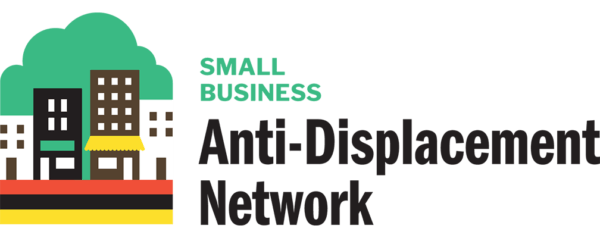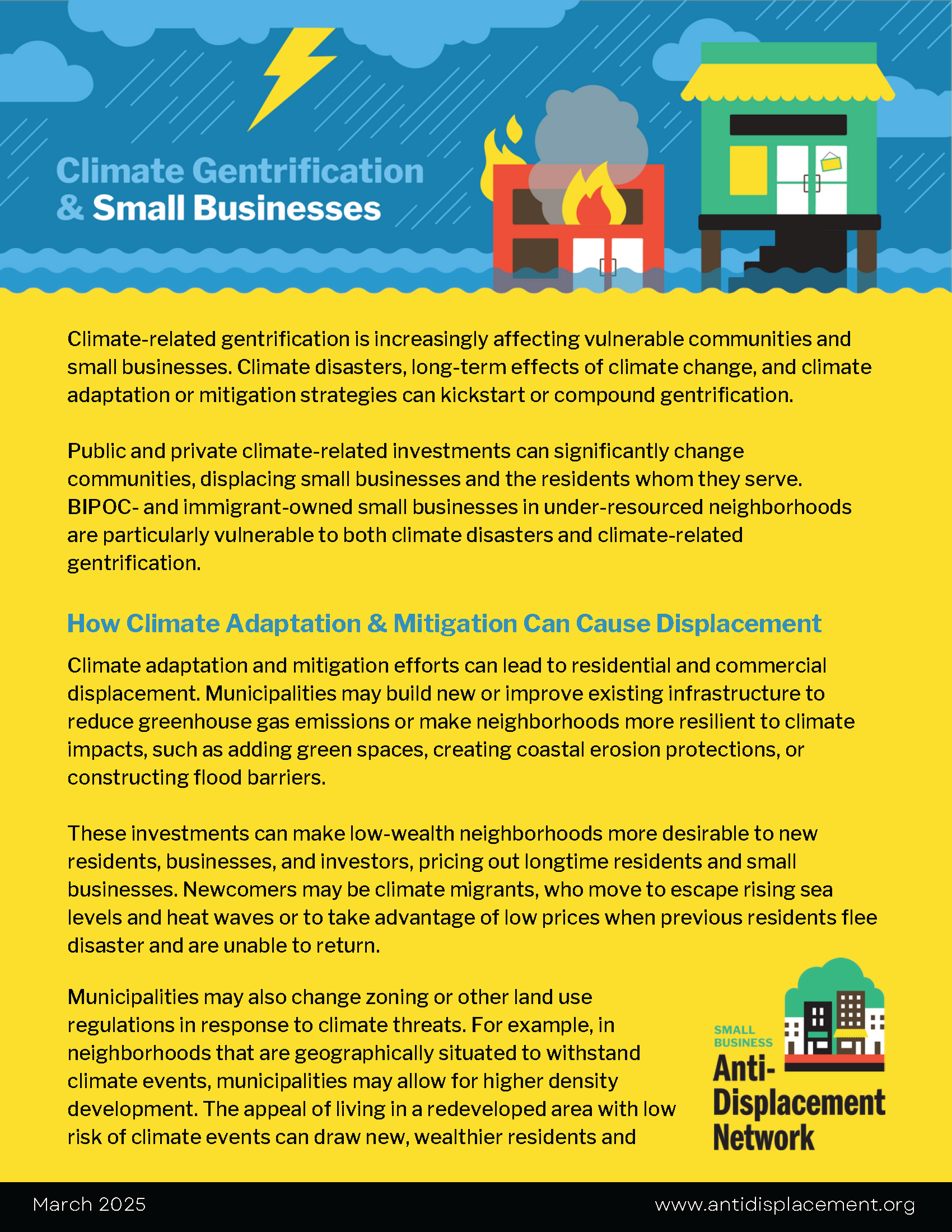Climate-related gentrification is increasingly affecting communities and small businesses. Public and private climate-related investments—both preventative measures and post-disaster efforts—can significantly change neighborhoods, displacing small businesses and the residents whom they serve. BIPOC- and immigrant-owned small businesses in under-resourced neighborhoods are particularly vulnerable to both climate disasters and climate-related gentrification.
As climate events become more frequent and mitigation investment more common in cities across the country, more needs to be done to center equitable approaches to climate resilience and protect BIPOC- and immigrant-owned small businesses.
SBAN is working to identify, research, and share effective strategies for keeping businesses in place in neighborhoods vulnerable to climate gentrification. We are funding case studies of climate gentrification strategies and will be updating this page with ongoing research. Contact us at sban@umd.edu to share your stories and strategies for keeping small businesses in place.
NEW! Tools in our toolkit marked with this icon can help preserve small businesses in communities experiencing or vulnerable to climate gentrification.

